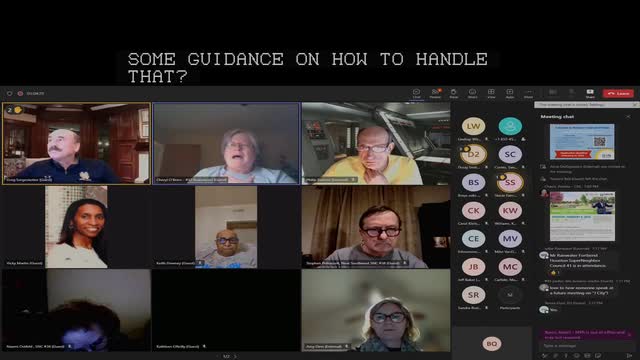Houston residents press for earlier notice, wider review of tax‑credit and PFC housing projects
Get AI-powered insights, summaries, and transcripts
Subscribe
Summary
Super Neighborhood Alliance members raised repeated concerns about low‑income housing tax‑credit deals and public facility corporation approvals, saying communities often learn of projects only after permits are issued and urging stronger city and state notification and review rules.
Leaders of Houston super neighborhoods pressed elected officials on the city’s process for approving low‑income housing tax‑credit projects and Public Facility Corporation (PFC) deals, saying residents frequently learn about developments too late to meaningfully weigh in.
The discussion drew several speakers from the Super Neighborhood Alliance who described repeated cases where developers sought tax credits or PFC structures with little community notice. Robin Curtis, who said she has worked in real‑estate development, said developers earn more scoring points by targeting lower incomes and that practice “creates for us on the ground, at the ground level, a real problem” by concentrating lower‑income units in neighborhoods that lack supportive resources.
Residents described efforts to use the Texas Department of Housing and Community Affairs (TDHCA) website to track applications and to identify developers’ proposals before projects move forward. One resident, Naomi, described a project that received a 9% tax credit despite what she said would be an automatic disqualifier under TDHCA rules — construction over a landfill — and said the developer later returned the credit rather than defend the award in an open hearing.
Speakers cited two separate approval pathways. Several people noted that some PFC deals now require city council final approval and that change has made those transactions “much more difficult to get” after high‑profile controversy. At the same time, speakers said TDHCA rules on who must be notified are narrow; a state official told residents that notice is required only if a proposed project lies inside a community’s formal boundary, not merely nearby.
Super Neighborhood Vice President Vicky Martin (Super Neighborhood 4950) urged the city to restore or expand the older practice in which planning staff routed development applications to district council members and to the affected super neighborhood so developers would present proposals at the neighborhood level. Several speakers said developer outreach often does not happen early enough or at all.
Council Member Twyla Carter and Council Member Sally Alcorn both participated in the session and said they are tracking the issue. Alcorn described recent policy scrutiny at the council level and said some prior practices have changed, leaving gaps residents feel. “If district council members feel like nobody has talked to the community at all about [a project], those are unlikely to move forward,” Alcorn said.
Speakers recommended several changes: earlier notice for projects near — not only inside — super‑neighborhood boundaries; clearer city guidance requiring developers to meet with affected civic clubs and super neighborhoods; and more robust enforcement of TDHCA applicant requirements. Willie (last name not specified) and others described prior successful efforts in which community advocacy reduced the number of proposed projects in a given area.
The Alliance did not adopt a formal motion on the issue at this meeting. Members said they will continue to press district council members and the mayor’s office to change notification practices, and several suggested the Alliance could prepare a model notification letter for distribution to developers and city staff.
Background: speakers repeatedly referenced TDHCA and the city’s Planning Department as the decision points for tax‑credit scoring and local approvals. Speakers said the mix of incomes stabilizes neighborhoods and that clustering low‑income units without complementary services can strain surrounding areas.
